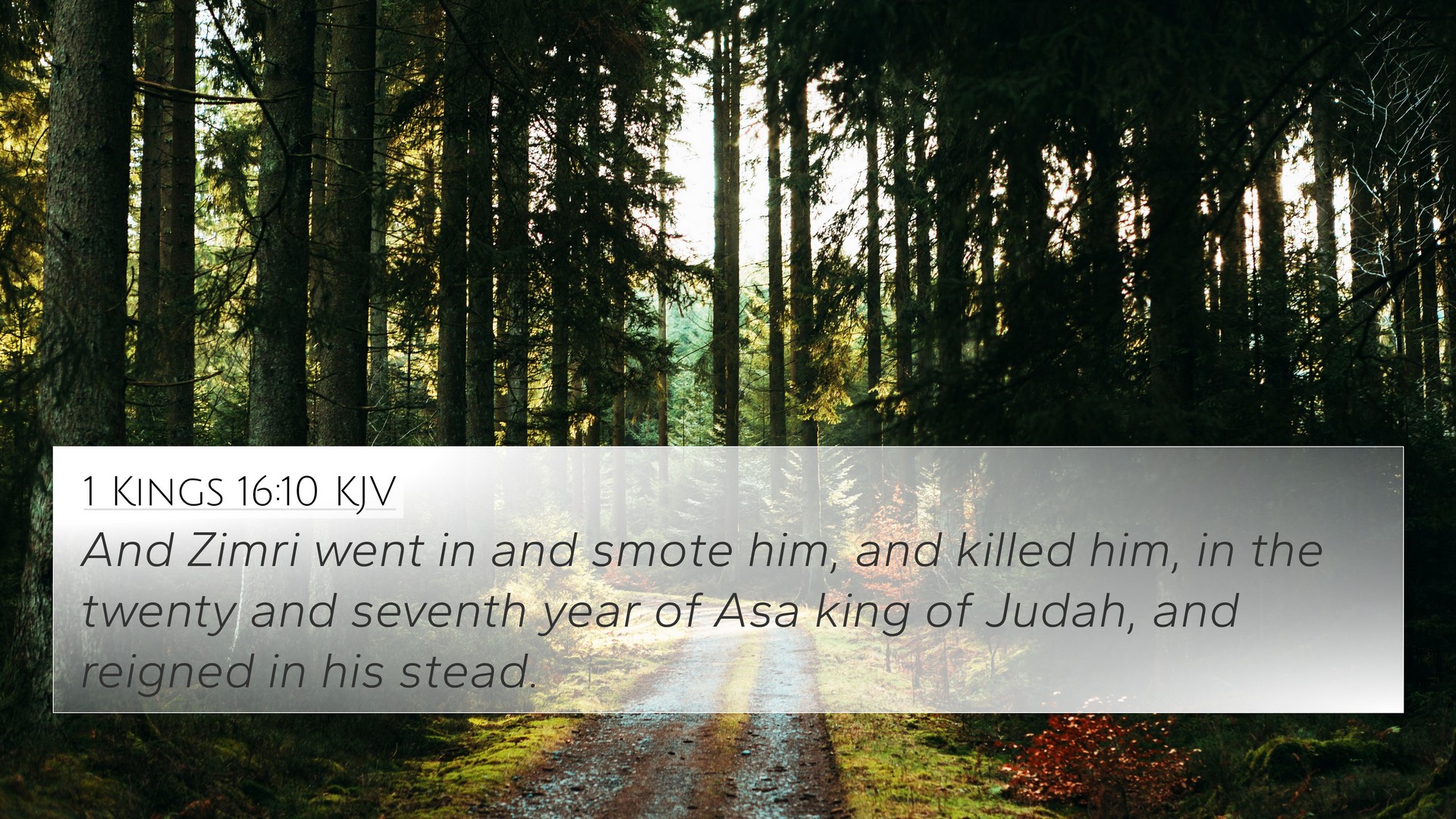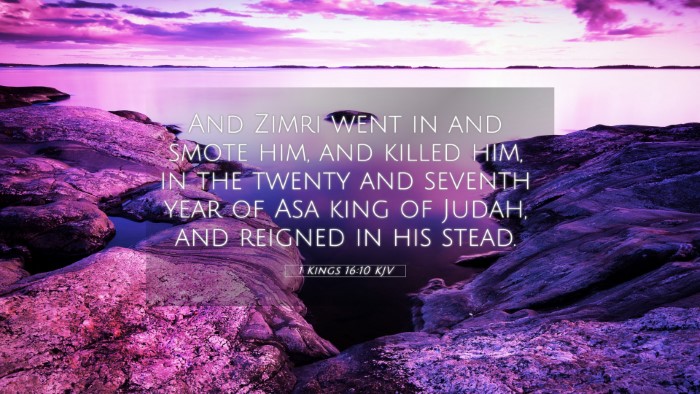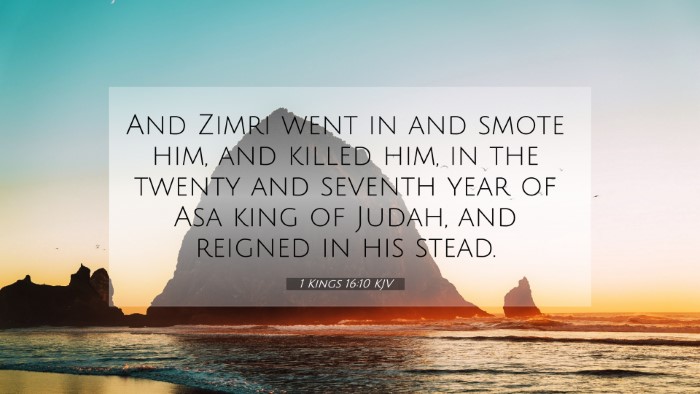Understanding 1 Kings 16:10
Bible Verse: 1 Kings 16:10 - "And Zimri went in and smote him and killed him, in the twenty-seventh year of Asa king of Judah, and reigned in his stead."
Summary of the Verse
In this verse, we observe the cunning actions of Zimri who murders Elah, the reigning king of Israel, to seize the throne for himself. This act of regicide occurs during the reign of Asa, king of Judah, showcasing a period of political turmoil and instability in the northern kingdom of Israel.
Commentary Insights
- Matthew Henry: Henry emphasizes that Zimri's decision to assassinate Elah was not merely a reflection of ambition but also of the moral decline evident in Israel's leadership. He notes how such violent power struggles were common amidst Israel's unfaithfulness to God.
- Albert Barnes: Barnes draws attention to the historical implications of this event, noting that the act signifies a drastic shift in leadership. He also relates this to the bigger narrative of Israel's kings, who often met their demise through treachery and violence.
- Adam Clarke: Clarke highlights the idea that Zimri's rise to power would lead to further conflict and instability, following a line of kings who acted unrighteously. He underscores the consequences of sin and rebellion against God as central themes in this passage.
Thematic Analysis
1 Kings 16:10 encapsulates themes of ambition, treachery, and the moral decay of leadership in Israel. The assassination of Elah by Zimri can be seen as symbolic of how far Israel had strayed from God's laws, paralleling other events in the Bible where leaders acted out of selfishness.
Bible Verse Cross-References
To fully grasp the implications of this verse, it is pertinent to cross-reference it with other relevant passages:
- 1 Samuel 15:23 - Highlights the consequences of rebellion against God.
- 2 Samuel 1:15-16 - Illustrates the gravity of treachery in royal succession.
- 1 Kings 14:9 - Discusses the corruption of the kings of Israel.
- Proverbs 29:2 - Speaks on the importance of righteous leaders in the governance of a nation.
- Psalm 75:7 - Acknowledges that promotion comes from God, contrasting with Zimri’s violent ascent.
- Matthew 5:21-22 - Jesus reaffirms the severity of murder and anger, connecting to Zimri's actions.
- Isaiah 33:22 - God as the judge and leader emphasizes divine authority over earthly rulers.
Connecting Themes Across the Bible
The connections between the violence described in 1 Kings and similar narratives throughout the Bible illustrate a thematic dialogue about the consequences of human sinfulness. By analyzing similar verses, one can identify a consistent message about the need for divine leadership and the resultant chaos when human authority turns corrupt.
Research and Study Tools
For those looking to delve deeper into the themes and cross-references in this and other biblical texts, various tools can aid in your study:
- Bible concordances provide listings of related verses for further study.
- Online Bible cross-reference guides can help identify supplementary texts.
- Cross-reference Bible study materials offer structured methods for thematic exploration.
- Chain references can facilitate understanding of inter-Biblical dialogues.
Conclusion
1 Kings 16:10 serves as a poignant reminder of the dangers of unchecked ambition and the moral ramifications that follow such treachery. Cross-referencing with other scriptural passages enriches our understanding of the biblical narrative and provides a framework for applying its lessons in our lives today.
Keywords: Bible verse cross-references, connections between Bible verses, linking Bible scriptures, comparative Bible verse analysis, Bible verses that relate to each other.



